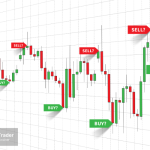[ˈɪndəstri trends]
Industry trends refer to the direction or movement of a particular industry or market over time.
What are Industry Trends?
Industry trends describe the general trajectory or course of a specific industry or market as it evolves and progresses over time. These trends can be shaped by a variety of factors, such as changes in technology, shifts in consumer behavior, regulatory changes, and more.
Understanding industry trends is important for businesses to stay competitive and adapt to changing market conditions.
Key Takeaways
- By keeping up with industry trends, businesses can identify emerging opportunities and adapt their strategies accordingly. This can help them stay ahead of the curve and take advantage of new market developments.
- Understanding industry trends can help businesses remain competitive by allowing them to anticipate changes and respond quickly to market shifts. This can help them stay ahead of their competitors and gain a stronger foothold in the market.
- It can also help businesses better manage risk by allowing them to identify potential threats and take steps to mitigate them. By understanding market trends and shifts, businesses can adjust their strategies to minimize risk and protect themselves against potential losses.
- By tracking industry trends, businesses can make more informed decisions about product development, marketing, and other key business functions. This can help them make better use of their resources and improve their overall performance over time.
Example
Here are some examples of current industry trends in various sectors:
- Healthcare: The use of telemedicine and remote monitoring technologies is on the rise, as patients seek more convenient and accessible healthcare options.
- Financial services: Digital banking and contactless payments are becoming increasingly popular, and the use of artificial intelligence and machine learning is helping financial institutions better analyze and manage risk.
- Energy: There is a growing focus on sustainability and renewable energy sources, and businesses are investing in technologies like solar and wind power to reduce their carbon footprint.
- Retail: The trend towards personalized shopping experiences is gaining momentum, with businesses using data analytics and machine learning to better understand their customers and offer tailored products and services.
- Transportation: The development of autonomous vehicles and electric cars is changing the face of the transportation industry, with many businesses investing in these technologies to stay ahead of the curve.
Back to Glossary.






